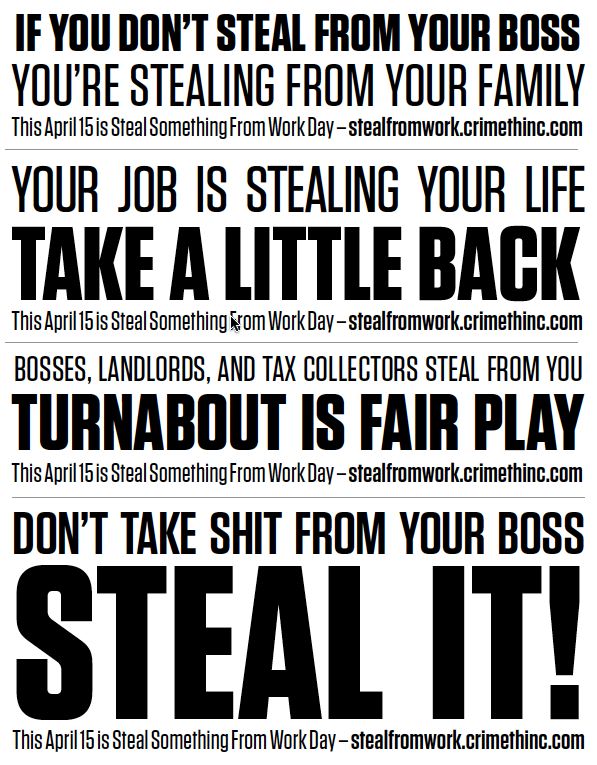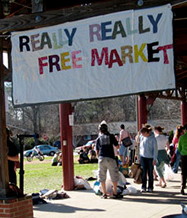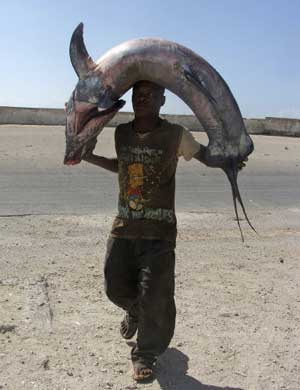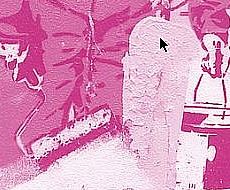In the subway, there’s no longer any trace of the screen of embarrassment that normally impedes the gestures of the passengers. Strangers make conversation without making passes. A band of comrades conferring on a street corner. Much larger assemblies on the boulevards, absorbed in discussions. Surprise attacks mounted in city after city, day after day. A new military barracks has been sacked and burned to the ground. The evicted residents of a building have stopped negotiating with the mayor’s office; they settle in. A company manager is inspired to blow away a handful of his colleagues in the middle of a meeting. There’s been a leak of files containing the personal addresses of all the cops, together with those of prison officials, causing an unprecedented wave of sudden relocations. We carry our surplus goods into the old village bar and grocery store, and take what we lack. Some of us stay long enough to discuss the general situation and figure out the hardware we need for the machine shop. The radio keeps the insurgents informed of the retreat of the government forces. A rocket has just breached a wall of the Clairvaux prison. Impossible to say if it has been months or years since the “events” began. And the prime minister seems very alone in his appeals for calm. Read more
Read more | ›››

 During the ‘Golden Age’ of piracy in the 17th and 18th centuries, crews of early proletarian rebels, dropouts from civilization, plundered the lucrative shipping lanes between Europe and America. They operated from land enclaves, free ports; ‘pirate utopias’ located on islands and coastlines as yet beyond the reach of civilization. From these mini-anarchies – ‘temporary autonomous zones’ – they launched raiding parties so successful that they created an imperial crisis, attacking British trade with the colonies, and crippling the emerging system of global exploitation, slavery and colonialism. Read more about
During the ‘Golden Age’ of piracy in the 17th and 18th centuries, crews of early proletarian rebels, dropouts from civilization, plundered the lucrative shipping lanes between Europe and America. They operated from land enclaves, free ports; ‘pirate utopias’ located on islands and coastlines as yet beyond the reach of civilization. From these mini-anarchies – ‘temporary autonomous zones’ – they launched raiding parties so successful that they created an imperial crisis, attacking British trade with the colonies, and crippling the emerging system of global exploitation, slavery and colonialism. Read more about  The net needs alternatives to corporate social networks like Facebook because social networking and digital communications technologies are now critical to people fighting to make freedom in their societies or simply trying to preserve their privacy. But corporate services and other parts of the Net are intensively surveilled by profit-seekers and government agencies. Because smartphones, mobile tablets, and other common forms of consumer electronics are being built as “platforms” to control their users and monitor their activity. Freedom Box exists to counter these unfree “platform” technologies that threaten political freedom. Freedom Box exists to provide people with privacy-respecting technology alternatives in normal times – like Facebook alternative
The net needs alternatives to corporate social networks like Facebook because social networking and digital communications technologies are now critical to people fighting to make freedom in their societies or simply trying to preserve their privacy. But corporate services and other parts of the Net are intensively surveilled by profit-seekers and government agencies. Because smartphones, mobile tablets, and other common forms of consumer electronics are being built as “platforms” to control their users and monitor their activity. Freedom Box exists to counter these unfree “platform” technologies that threaten political freedom. Freedom Box exists to provide people with privacy-respecting technology alternatives in normal times – like Facebook alternative  In the
In the 
 According to the capitalist lexicon, the “Free Market” is the economic system in which prices are determined by unrestricted competition between privately owned businesses. Any sensible person can recognize immediately that neither human beings nor resources are free in such a system; hence, a “Really Really Free Market” is a market that operates according to gift economics, in which nothing is for sale and the only rule is share and share alike. In the interest of not taxing the reader’s patience, a single apostrophe stands in for the two “Really”s throughout this text.
According to the capitalist lexicon, the “Free Market” is the economic system in which prices are determined by unrestricted competition between privately owned businesses. Any sensible person can recognize immediately that neither human beings nor resources are free in such a system; hence, a “Really Really Free Market” is a market that operates according to gift economics, in which nothing is for sale and the only rule is share and share alike. In the interest of not taxing the reader’s patience, a single apostrophe stands in for the two “Really”s throughout this text. 
 The »Creative Industries« are considered key to the city development in the 21st Century. Cities such as Berlin put them at the center of image and location policy. The debates are mainly of benefit to the economy and capital development at the forefront – the changed living and working conditions of creative people are in contrast scarcely taken into view. They will be the topic of the congress. The digital revolution in production and distribution, the struggles for intellectual property and realization rights, more flexible corporate structures and labour relations, the project form of work and the privatization of cultural institutions have changed jobs and lifestyles as subjectivities. An unwieldy number of opportunities face enormous competition for jobs and contracts, increased chances of expression the pressure of conformity by the market, more self-determination the self-exploitation in informal and precarious employment relationships and with unfettered income at the same time.
The »Creative Industries« are considered key to the city development in the 21st Century. Cities such as Berlin put them at the center of image and location policy. The debates are mainly of benefit to the economy and capital development at the forefront – the changed living and working conditions of creative people are in contrast scarcely taken into view. They will be the topic of the congress. The digital revolution in production and distribution, the struggles for intellectual property and realization rights, more flexible corporate structures and labour relations, the project form of work and the privatization of cultural institutions have changed jobs and lifestyles as subjectivities. An unwieldy number of opportunities face enormous competition for jobs and contracts, increased chances of expression the pressure of conformity by the market, more self-determination the self-exploitation in informal and precarious employment relationships and with unfettered income at the same time.  Munich, Germany. Marienplatz. Richard Stallman will speak at a joint rally against bio- and software patents in front of the European Patent Office. Read more at
Munich, Germany. Marienplatz. Richard Stallman will speak at a joint rally against bio- and software patents in front of the European Patent Office. Read more at